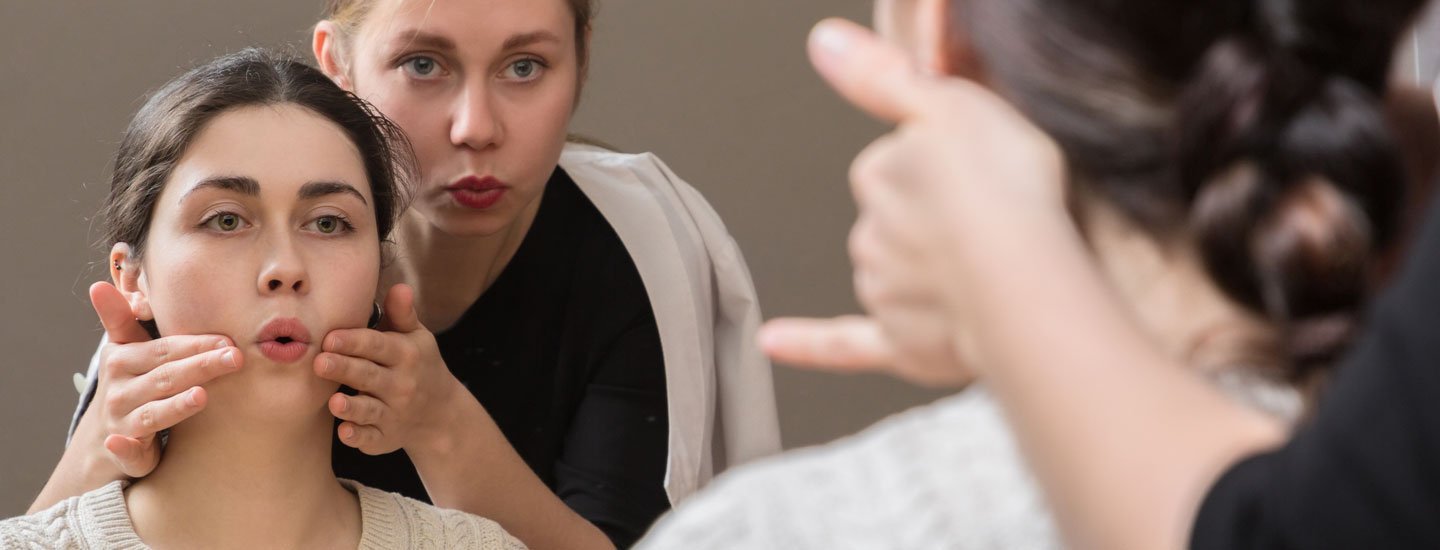
VOICE THERAPY
Our goal at EKO is to help you restore a healthy voice and prevent any vocal injury by using evidence based strategies.
Many factors can harm your voice such as incorrect speaking and projection techniques, poor vocal hygiene or high occupational vocal demands. In addition, some biological variables like hormonal changes or age might have a negative effect on the voice.
Vocal Therapy
Vocal therapy is used to treat dysphonia, hoarseness, vocal fatigue, vocal fold paralysis and vocal fold lesions such as nodules. In fact, in most cases nodules disappear after vocal therapy without the need of surgery.
Pre/Post Operative Voice Therapy
In cases where surgery is needed, voice therapy is essential in both the preoperative and postoperative stages, shortening the recovery time and preventing the recurrence of lesions.
Voice and Swallowing Sessions in case of ENT cancer
Vocologists and SLPs help patients suffering from head and neck or laryngeal cancer before and after their treatment. In fact, after surgery, patients might be unable to speak or eat regularly. After a detailed assessment of these functions, the best therapy treatment plan will be determined and implemented to help the patient maintain a good quality of life.
Puberphonia Therapy
Puberphonia is defined by the persistence of a high pitched voice after puberty. This condition is more common in males. Despite normal growth of the larynx and balanced hormones, the adult will keep using his pre-puberty voice pitch. In this case, voice therapy is highly recommended to help the individual find his normal pitch and speak with a confident voice.
Aging voice Therapy
Presbyphonia is a term used to describe the voice changes related to aging. The older larynx combined with poor respiratory functions result in a weaker and lower voice. Voice therapy is indicated in these cases to improve the communication and the quality of life of the elderly.
